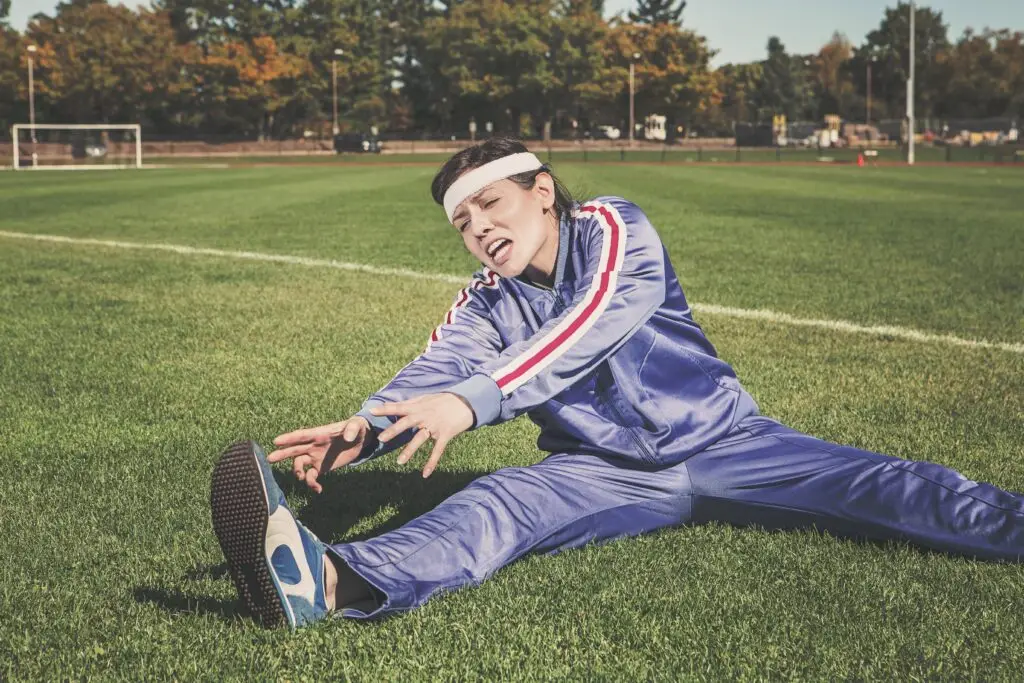Gaining weight despite exercising daily is one of the most frustrating experiences for anyone trying to get fit. You’re doing everything right – eating clean, moving your body, avoiding junk food – and yet the number on the scales keeps climbing. If you’re wondering why you’re gaining weight even though your routine includes exercise, this blog is your final stop. Let’s explain it with real science, no drama and no false promises.
1. You're building muscle, but only tracking the scale
If you’ve just started working out or strength training, weight gain can actually be a positive sign. Muscle weighs more than fat, so even though your clothes fit better and your body looks leaner, the scale can go up. This is where many people panic. They think their workout is a failure because they’re only focusing on the number on the scale – not body composition.
Instead of tracking weight daily, focus on body measurements, how your clothes fit, photos or, if you’re serious, DEXA scans. The real problem isn’t your workout – it’s relying too much on the wrong metric. Water retention from muscle repair also temporarily increases the scale’s weight, especially after intense strength training.
2. You're eating more than you think after a workout
This is a silent trap. After a workout, your body probably feels like it should be getting a “reward.” This often leads to mindless snacking or eating more calories than you burned. A 30-minute jog might burn 300 calories, but a protein smoothie or post-gym meal can easily add 500-800 calories, especially if you’re not tracking the ingredients.
Most people overestimate calories burned and underestimate calories consumed. This mismatch leads to gradual weight gain, even after consistently working out. It’s not a matter of starvation – it’s a matter of portion awareness, hidden sugars and understanding how little calories are burned with exercise and how quickly we eat them back.

3. Your workouts are triggering stress hormones like cortisol
Too much exercise – especially intense cardio like long-distance running or HIIT every day – can backfire. It can trigger chronic cortisol spikes, a stress hormone that encourages your body to store fat, especially around the belly. This is especially common when you’re sleep-deprived, under emotional stress or haven’t eaten enough.
Even healthy workouts become a problem if they push your body into constant recovery mode. This leads to bloating, water retention and sometimes cravings afterward. If your body thinks it’s in survival mode, it won’t burn fat efficiently – it’ll hold on to it.
If you’re doing everything right at the gym, eating clean and still not getting the results you expect, take a breather. Sometimes, it’s not about working harder—it’s about calming your mind. Stress isn’t just mood—it silently causes weight gain. When your body is stressed, it produces cortisol, a hormone that literally stores fat around your belly. Crazy, right? So managing stress is just as important as managing calories. One thing that really helps? Keeping a simple stress relief toy like a hand grip strengthener or a squishy stress ball at your desk or in your bag. It might sound silly, but squeezing something mindlessly for a few minutes can take your mind from chaos to calm.
Checkout Now :-
4. You're not getting enough sleep to recover or burn fat
Sleep deprivation completely disrupts your fat-loss and muscle recovery cycle. Studies show that sleeping 5 hours or less significantly increases the hunger hormone (ghrelin) and decreases the satiety hormone (leptin)—meaning you feel hungrier, you eat more and burn less fat. Even if your workouts go well, poor sleep leads to weight gain over time.
You also miss out on growth hormone, which is released during deep sleep and helps with muscle repair and fat breakdown. Without it, your body clings to stored fat, slowing metabolism and increasing cravings. So yes, the hours you spend in bed are just as important as the hours you spend in the gym.
5. You’re Only Doing Cardio, No Strength Training
Cardio helps burn calories, but too much of it and no strength training can lead to muscle loss, especially during calorie deficits. Losing muscle slows your resting metabolic rate, making it harder to burn fat at rest. The result? You burn fewer calories over time and experience weight gain or plateaus—even while doing the same workouts.
To fix this, add 2–3 sessions of resistance training weekly. Building muscle helps burn calories all day long, and it shapes your body in ways cardio never can. Even bodyweight workouts at home can prevent this problem.

6. You’re Not Drinking Enough Water
Dehydration plays a surprising role in weight gain. When you don’t drink enough water, your body may retain fluids, which can inflate the scale. Worse, dehydration can be misread by the brain as hunger, leading to extra snacking.
Water also helps in digesting food, flushing toxins, and powering your metabolism. Even mild dehydration affects energy levels, making workouts feel harder, which can reduce exercise consistency or performance over time.
Make sure to drink at least 2–3 liters per day—more if you sweat heavily or live in a hot climate. Add electrolytes if needed.
7. You’re eating “healthy” but overeating
Nuts, granola, peanut butter, smoothies, energy bars — these healthy foods are packed with nutrients, but also high in calories. Without portion control, you can end up doubling your calorie intake, thinking you’re eating clean. This is a major cause of weight gain while working out.
Always check the serving size. One tablespoon of peanut butter = ~100 calories. One cup of granola = ~400–500 calories. A smoothie with almond butter, oats, and banana can rack up 800+ calories fast.
Healthy doesn’t mean unlimited. Don’t treat these foods like a free pass, but like tools.
8. Your body has a hormonal imbalance
Sometimes, weight gain isn’t caused by diet or exercise — it’s caused by hormonal health. Conditions like hypothyroidism, PCOS, insulin resistance or perimenopause can affect the way your body stores fat. Even with the right workouts, your body can be stuck in fat-storage mode.
Warning signs: Fatigue, mood swings, irregular menstrual cycles, thinning hair or bloating for no reason. If any of these symptoms sound familiar to you, get a blood test. Ignoring these issues can lead to frustration and yo-yoing results, no matter how hard you try.
9. You get tired without rest
More isn’t always better. If you workout 6-7 days a week without rest, your body can hit a wall of fatigue. This leads to inflammation, mental burnout and a decrease in workout quality. Over time, the result is weight gain, especially if you’re constantly sore, tired or mentally exhausted.
Rest days aren’t lazy – they’re necessary. They give your muscles time to recover, hormones time to balance and your mind space to stay motivated. One or two recovery days a week can actually speed up fat loss and improve long-term results.
🧩What you should do now
Here’s a step-by-step guide to preventing weight gain while working out:
- Check your hormones: Ask your doctor for a full panel—TSH, Free T3/T4, cortisol, insulin, testosterone, estrogen.
- Adjust your workouts: No more daily HIIT. Incorporate walking, weight lifting, and rest.
- Prioritize recovery: sleep, stress, sun, hydration.
- Fix your diet: Ditch the “healthy” sugar bombs. Eat real, balanced meals.
- Fix your gut: Fermented foods, prebiotics, fiber-rich veggies.

Pingback: 4 brutal Am I Failing in Life or Just Growing Silently?